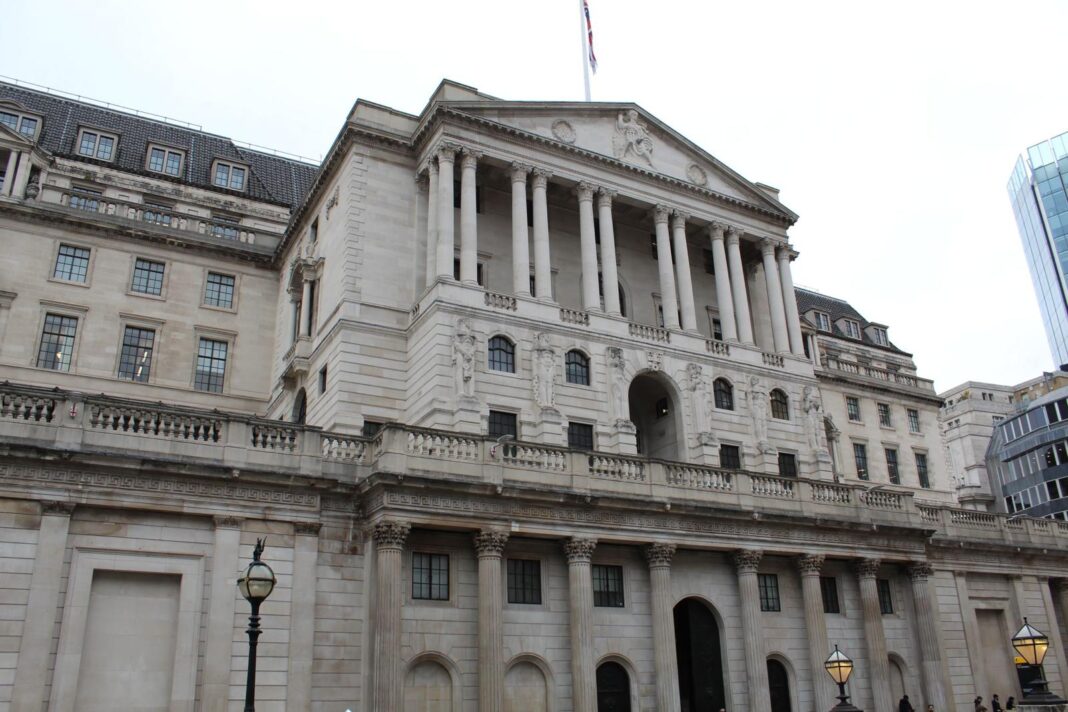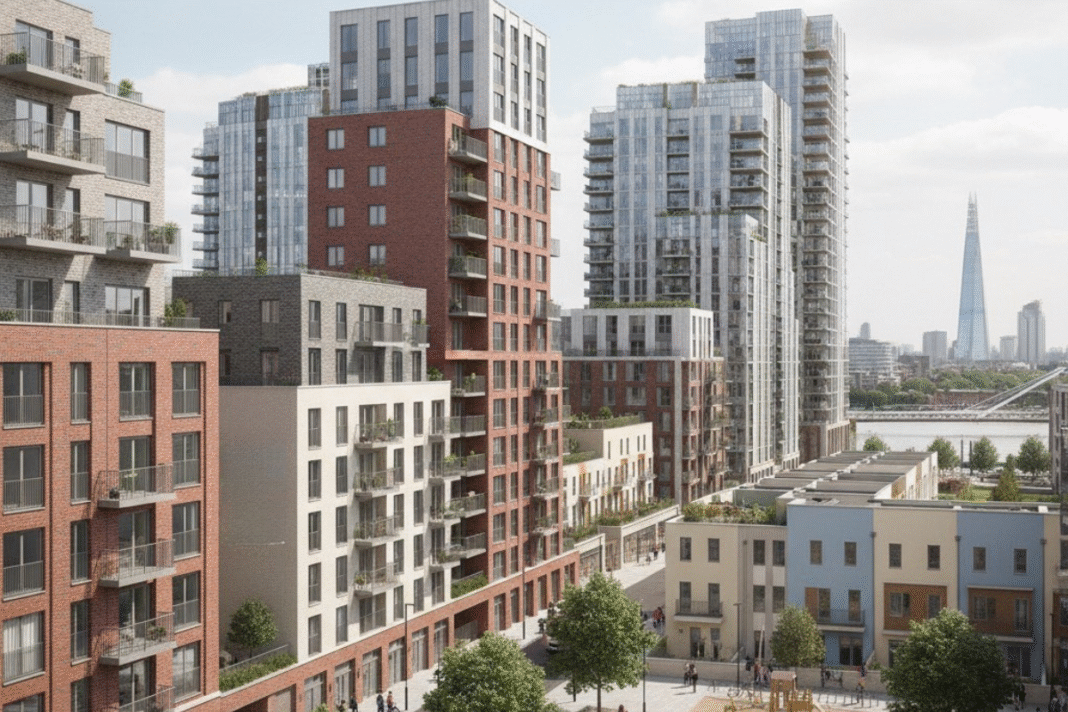UK property sales rose modestly in September, signalling a period of stabilisation for the housing market as borrowing costs and buyer confidence begin to level out.
The latest HMRC data shows 95,980 residential transactions were completed in September on a seasonally adjusted basis – 1% higher than in August and 4% above the same month last year.
It marks the fifth consecutive month of gradual recovery following a slowdown in the spring, when higher mortgage rates curbed demand.
Non-seasonally adjusted residential sales totalled 102,420, up 8 per cent annually but 2% lower than August.
UPWARD TREND
HMRC said activity has been trending upward since April’s dip, reflecting more stable interest rates and greater availability of mortgage products.
In contrast, non-residential transactions were weaker. The seasonally adjusted figure of 9,910 was 4% down year on year and slightly below August levels. However, unadjusted data showed a 12% monthly rise to 10,320, indicating renewed momentum in commercial property deals.
The figures come ahead of the Chancellor’s Autumn Budget, where the industry is watching closely for any housing-related measures that could further influence activity heading into the final quarter of the year.
INDUSTRY REACTION

Nathan Emerson, Chief Executive at Propertymark, says: “An overall uplift regarding the volume of property transactions is always welcome news, as it is a key indicator of both consumer confidence and affordability.
“Despite turbulence within the wider economy, homebuyers have benefitted from three base rate cuts since the start of the year, allowing for much greater financial flexibility for people in many cases.
“It is, however, a case of all eyes on the Autum Budget, especially for prospective buyers in England and Northern Ireland, as we learn more on how Stamp Duty may be potentially replaced by a new alternative.
“With ambition from all nations across the UK to ensure new housing stock keeps pace with regional demand, it will be important to keep check on milestones and progress across the forthcoming 12 months.”
BUDGET RISK

Tom Bill, head of UK residential research at Knight Frank, says: “Housing market activity has been flat in recent months, with demand supported by stable and broadly affordable mortgage rates.
“However, a two-speed market has developed as the Budget approaches, with buyers and sellers in higher-value markets hesitating due to uncertainty around property taxes.
“The risk is that momentum is gradually sapped from the wider marker after 26 November as sentiment weakens and the tax landscape deteriorates.”
FUNDAMENTALS ENCOURAGING

Iain Mckenzie, Chief Executive of The Guild of Property Professionals, says: “The latest transaction data offers a reassuring sign that confidence is steadily returning to the housing market.
“This growth, coupled with a nine-month high in mortgage approvals and a further easing in borrowing rates, points to a market that is quietly regaining momentum.
“Even though many are taking a cautious stance ahead of the Autumn Budget, buyers are responding to improving affordability and more stable mortgage conditions.
“The Bank of England’s rate cuts have helped to unlock activity, while the increase in available stock and more realistic pricing are creating a healthier balance between supply and demand.
“While uncertainty remains around future fiscal policy, the fundamentals are encouraging. Provided there are no major policy shocks, we expect steady progress to continue through the end of the year and into early 2026, with regional markets performing in line with local affordability dynamics.”
CONFIDENCE ON HOLD

Jeremy Leaf, north London estate agent and a former RICS Residential Chairman, says: “With transaction numbers hardly changed, buyers and sellers are shrugging off concerns about Budget content and a weakening labour market.
“Of course these figures are a little dated but confirm what we are seeing on the ground – sales are not collapsing or being drastically renegotiated.
“Underlying confidence remains but is on hold at least until the end of November.”
WE NEED STABILITY

Amy Reynolds, head of sales at Richmond estate agency Antony Roberts, says: “These transaction figures are steady, underlining what we’re seeing on the ground with some buyers and sellers, particularly those at the higher end of the market, sitting tight ahead of the Budget.
“Drawn-out uncertainty over potential tax changes is freezing activity and costing the Treasury in lost stamp duty.
“Stability, clarity and confidence are what the market needs most right now – we’ve already seen an exodus of wealthier Londoners moving abroad and if that trend continues, it’s not just the housing market that will suffer but the wider UK economy.”
RIGHT DIRECTION

Jason Tebb, President of OnTheMarket, says: “The uptick in seasonally adjusted transaction numbers indicates that the market continues to move in the right direction.
“The market remains remarkably resilient despite wider economic and political concerns.
“The series of interest rate reductions over the past year has provided reassurance for buyers and sellers alike, while last month’s rate hold suggests a stable rate environment which is further helping confidence.
“Pre-Budget speculation over tax changes is creating some uncertainty, although many are proceeding with transactions regardless. Any government efforts to help make the home-buying journey more accessible and affordable are welcome but any changes introduced in next month’s Budget must work for the market as a whole.”
BIGGEST PIPELINE IN FOUR YEARS

Richard Donnell, Executive Director at Zoopla says: “Housing transaction are 4% higher reflecting the steady rebound in buyer demand and sales agreed over the last 12 months.
“The housing market has the biggest pipeline of sales for four years with 350,000 homes working their way to completion.
“We expect transactions to start to plateau now they are back in line with the long run average of 1.2m sales a year.
“Budget uncertainty is starting to hit new sales agreed over £500,000 which will limit further growth in sales over 2026 unless the Chancellor makes a bold move such as cutting stamp duty in the Budget which would boost sales.”










